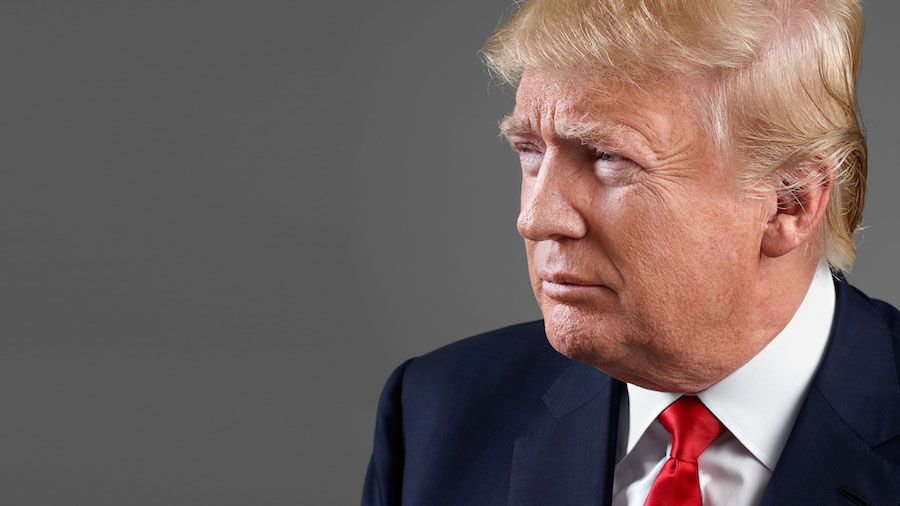While Donald Trump is famously nonsensical—consider his “you’re 21 years old, you start working and you’re paying $12 a year for insurance” gem from last week’s New York Times interview—mental health experts have been more or less discouraged from speaking on the president’s mental well-being, per a longstanding policy of sorts within the profession not to speculate on public figures’ psychological life.
As reported by Sharon Begley at STAT on Tuesday, the American Psychoanalytic Association sent a statement to its 3,500 members earlier this month saying that they shouldn’t feel like they need to refrain from commenting publicly about the mental health of public figures.
Dr. Prudence Gourguechon, the association’s former head, explained that the email was sent because of a “belief in the value of psychoanalytic knowledge” in explaining why people do the things they do. “We don’t want to prohibit our members from using their knowledge responsibly,” she added, especially “since Trump’s behavior is so different from anything we’ve seen before” in a president.
This is a reversal of what’s called the Goldwater Rule, named for former GOP candidate Barry Goldwater, who lost the 1964 presidential election after—among other things—Fact magazine surveyed a ton of psychiatrists about the conservative’s mental fitness. (“1,189 PSYCHIATRISTS SAY GOLD WATER IS PSYCHOLOGICALLY UNFIT TO BE PRESIDENT!,” the resulting headline read.) After he lost, Goldwater sued the magazine for libel and won. Since then, mental health professionals—a big bucket including psychiatrists, clinical psychologists, research psychologists and the like—have been discouraged from diagnosing politicians at a distance.
While this is certainly a big change, it’s important to note that the American Psychoanalytic Association doesn’t speak for all mental health professionals across the country—it’s an organization for clinical psychologists who practicing psychodynamic therapy in the long tradition of Freud. Other big professional organizations include the American Psychological Association, the Society for Personality and Social Psychology, and the American Psychiatric Association, which came up with the Goldwater Rule after the Fact Magazine debacle.
Writing about the Goldwater Rule last year, the Psychiatric Association’s president Maria Oquendo called it a “large, very public ethical misstep” for these doctors to issue specific diagnoses without having examined the candidate personally, one that besmirched the name of the profession. But now, in the era of Trump, the mental health community seems more ready to speak its mind.
Read more on STAT.


